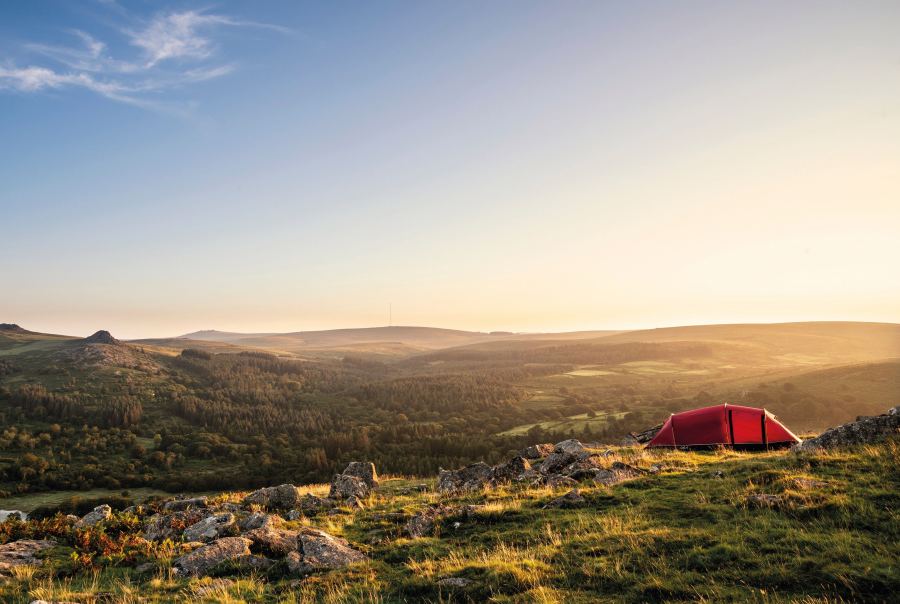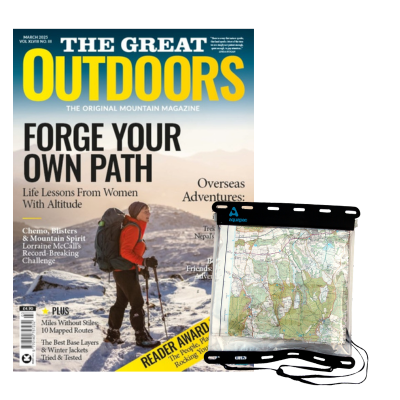“In my judgment.. the Dartmoor Commons Act 1985 confers on members of the public the right to rest or sleep on the Dartmoor commons, whether by day or night and whether in a tent or otherwise…”
So declared Sir Geoffrey Vos, Master of the Rolls, in the appeal court judgment on the Dartmoor wild camping case at the end of last month. To most of us this seemed obvious, but had been in doubt since January when Sir Julian Flaux ruled in the high court that there was no such right.
Hedge fund manager Alexander Darwall had challenged the map, produced by the Dartmoor National Park Authority (DNPA), which showed a right to camp on Stall Moor common, part of his 4000-acre Blachford estate. He and his wife won their case in the High Court against the DNPA, which then appealed. With the Open Spaces Society intervening effectively, the DNPA won in the Court of Appeal (though the Darwalls may yet seek leave to appeal to the supreme court).
Main image: wild camping on Dartmoor | Photo: Shutterstock
The Dartmoor Commons Act 1985 was pioneering legislation, giving the public the right to walk and ride on the Dartmoor commons, which form the bulk of the national park’s moorland. Section 10(1) spells out that the right is ‘for the purpose of open-air recreation’, and the crucial point was whether that included the right to wild camp. The court has confirmed it does, making Dartmoor one of the very few places in England and Wales where there is such a right.
Indeed, among the many observations of Sir Geoffrey Vos was: “A walker resting by sleeping is merely undertaking an essential part of the recreation of a lengthy walk.” As the Open Spaces Society demonstrated in its evidence to the court, camping is expressly excluded in the Countryside and Rights of Way Act 2000 (CROW), and in most pre-1985 arrangements giving access to commons and open country. This shows that it must have been included in the definition of recreation for it then to be excluded, which leads to the conclusion that it was embraced by the Dartmoor Commons Act. Why else expressly exclude camping from the scope of the right of access conferred by CROW, if it could never have been part of the right in the first place?
What next for England?
Generally wild camping without the landowner’s permission is a trespass, a civil wrong, although people have always done it unobtrusively – although the publicity surrounding the Dartmoor case may spur landowners to challenge the innocent backpacker. The High Court ruling in January caught
the public’s attention and caused the Labour Party to promise access legislation. “We will introduce a right to roam Act, a new law allowing national parks to adopt the right to wild camp, as well as expanding public access to woodlands and waterways,” pledged Alex Sobel, shadow environment minister, in a parliamentary debate on public access to nature on 18 May 2023.
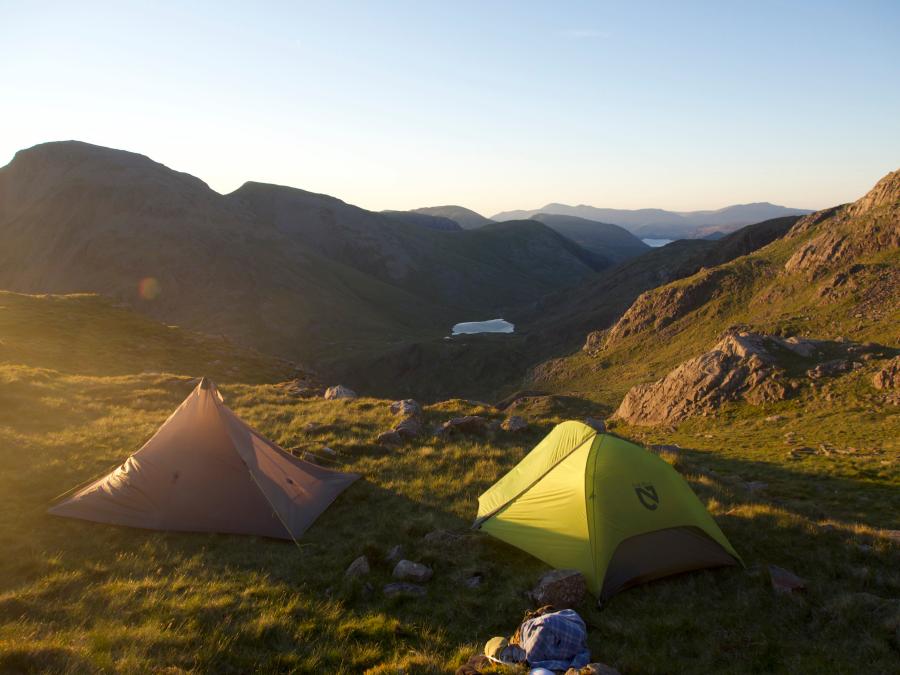
Unobtrusive wild camping is already widely practiced in many upland areas across England, like the Lake District. Photo: Carey Davies
Shadow ministers have made various statements, but the one about legislating to allow wild camping in national parks should be more precise. Not all of the land in our national parks is unenclosed upland; it includes farmed fields just like the rest of the country. It makes more sense to give the right to camp on all mapped access land (mountain, moor, heath, down and registered commons), and the easiest way to achieve this is by secondary legislation (regulations) to remove the restriction on backpack camping in CROW. This would open many thousands of acres to wild camping by right. Where restrictions are necessary and appropriate they could be implemented in individual cases.
However, we need more than a law for wild camping. CROW was a magnificent achievement for its time and won us much new access, mainly in the uplands. The lowlands did less well. There, the mapping was inconsistent, excluding much downland in particular, creating countless ‘access islands’,with no legal means of access and no duty to provide or enforce it. We had hoped that the mapping review, originally due in 2015, would remedy this, but the government now intends to postpone it further until 2031.
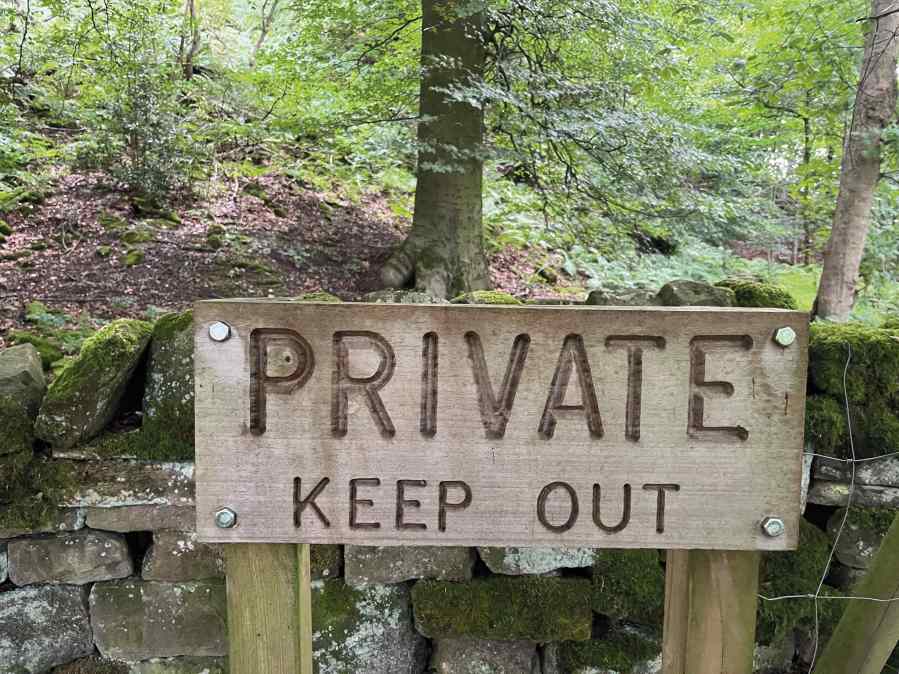
An all-too familiar sight in the English countryside. Photo: Carey Davies
Other than the brilliant England Coast Path and its adjoining access land, the Westminster government has failed miserably to widen public freedom in the countryside or to protect green spaces in towns. Its broken promises of new and better public access paid for with agricultural grants have left us with zilch. It has pledged fatuously, in its environmental improvement plan, “that everyone should live within 15 minutes walk of a green or blue space” but has no plan to achieve it.
So, we must look to the next parliament.
Unprecedented opportunity
The primary target must be more access close to people’s homes, to help those who do not have the means, confidence or ability to get out to enjoy the natural environment, and for their health and wellbeing. Why not legal access to woodlands and watersides, and on water? Why not require developers to register mandated green spaces as village greens, thus securing them for local people to enjoy for ever and preventing the builders coming back to infill with more homes?
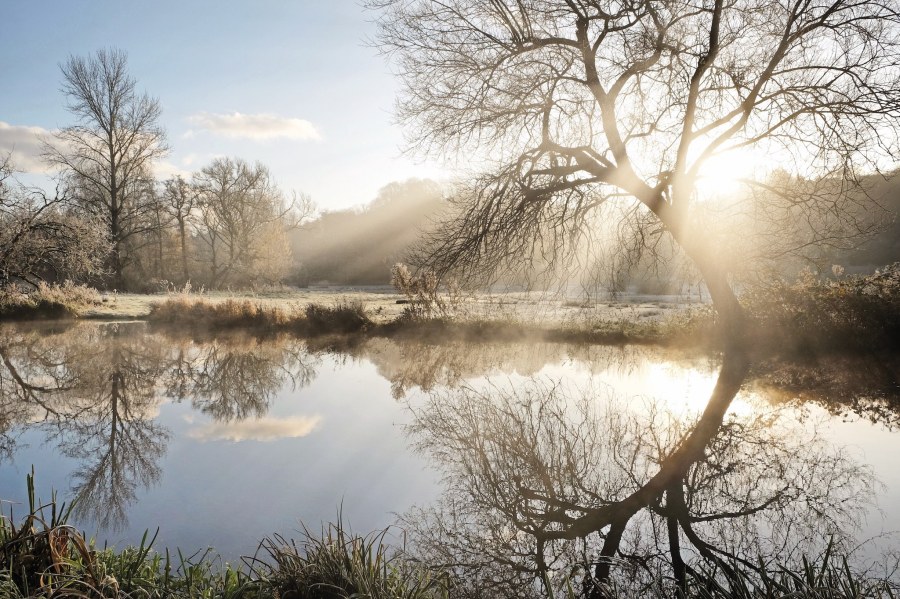
Mist on the River Wey, Surrey. Better legal access to watersides should be an ambition for England’s future. Photo: Shutterstock
We must also ensure the protection, maintenance and extension of our public path network. Paths, which are a part of our history, give people certainty – but they are severely underfunded and unrecorded, and many local authorities neglect them. Greater freedom to roam is of little use without
a robust path network – something that Scotland, despite its wide-ranging access freedoms, lacks. England should aspire to be even better than Scotland in this respect. An access code, similar to the Scottish model, would be an essential part of any scheme.
The Dartmoor camping case has catalysed a public movement for greater freedom of the outdoors. Here is an unprecedented opportunity to win more access for all.
Kate Ashbrook is General Secretary of the Open Spaces Society, Patron of the Walkers are Welcome towns network, a trustee of the Campaign for National Parks and the Dartmoor Preservation Association, and Vice-President of Ramblers GB, Ramblers Cymru and Ramblers Scotland.

